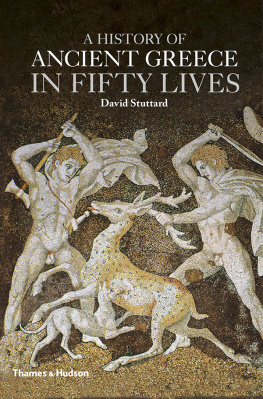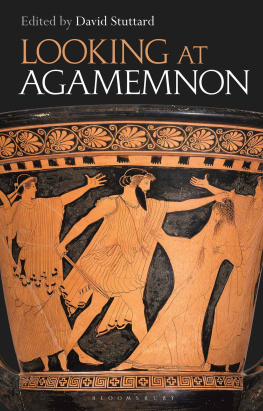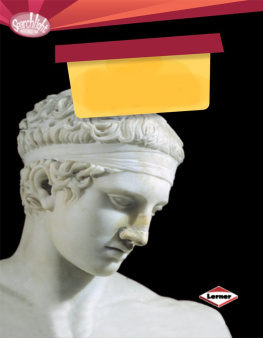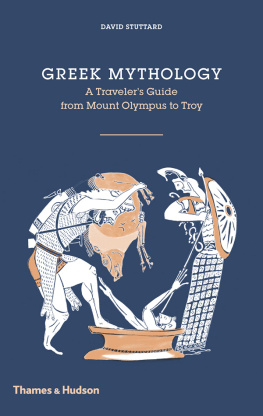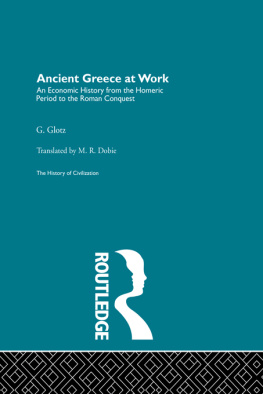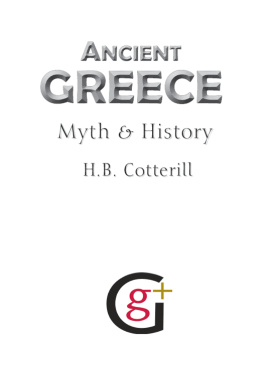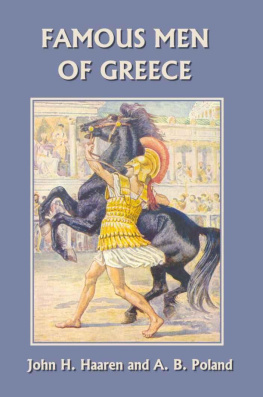David Stuttard - A History of Ancient Greece in Fifty Lives
Here you can read online David Stuttard - A History of Ancient Greece in Fifty Lives full text of the book (entire story) in english for free. Download pdf and epub, get meaning, cover and reviews about this ebook. year: 2014, publisher: Thames & Hudson, genre: Non-fiction. Description of the work, (preface) as well as reviews are available. Best literature library LitArk.com created for fans of good reading and offers a wide selection of genres:
Romance novel
Science fiction
Adventure
Detective
Science
History
Home and family
Prose
Art
Politics
Computer
Non-fiction
Religion
Business
Children
Humor
Choose a favorite category and find really read worthwhile books. Enjoy immersion in the world of imagination, feel the emotions of the characters or learn something new for yourself, make an fascinating discovery.
- Book:A History of Ancient Greece in Fifty Lives
- Author:
- Publisher:Thames & Hudson
- Genre:
- Year:2014
- Rating:5 / 5
- Favourites:Add to favourites
- Your mark:
- 100
- 1
- 2
- 3
- 4
- 5
A History of Ancient Greece in Fifty Lives: summary, description and annotation
We offer to read an annotation, description, summary or preface (depends on what the author of the book "A History of Ancient Greece in Fifty Lives" wrote himself). If you haven't found the necessary information about the book — write in the comments, we will try to find it.
A History of Ancient Greece in Fifty Lives — read online for free the complete book (whole text) full work
Below is the text of the book, divided by pages. System saving the place of the last page read, allows you to conveniently read the book "A History of Ancient Greece in Fifty Lives" online for free, without having to search again every time where you left off. Put a bookmark, and you can go to the page where you finished reading at any time.
Font size:
Interval:
Bookmark:
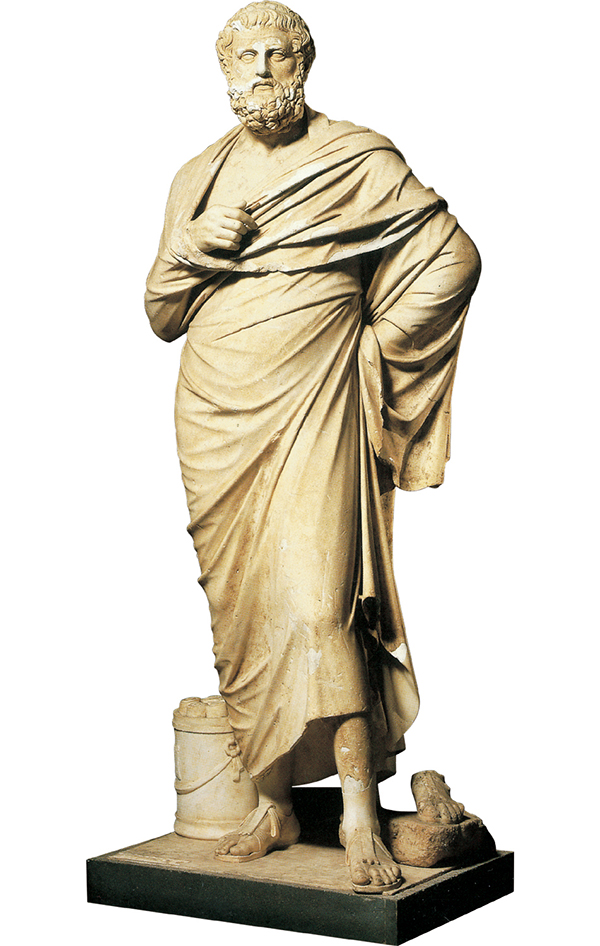

About the Author
David Stuttard taught Classics for eleven years in Edinburgh, St Andrews and York, and has written numerous books on the Classical world including The Romans Who Shaped Britain (with Sam Moorhead; Thames & Hudson, 2012), Power Games: Ritual and Rivalry at the Ancient Greek Olympics (2012) and The Parthenon: Power and Politics on the Acropolis (2013). He is the founder of theatre company Actors of Dionysus.
Other titles of interest published by
Thames & Hudson include:
Ancient Athens on Five Drachmas a Day
Art and Archaeology of the Greek World
Exploring the World of the Ancient Greeks
Lives of the Romans
The Making of the Middle Sea:
A History of the Mediterranean from the Beginning to the Emergence of the Classical World
Panorama of the Classical World
See our websites
www.thamesandhudson.com
www.thamesandhudsonusa.com
To my wife, Emily Jane
Contents



What we now call the ancient Greek world embraced three continents and many generations. At its greatest extent, it stretched from modern Spain in the west to India in the east, encompassing most of the countries between. Even after the rise of Rome, no one man or city ruled these lands in their entirety, though there were some who tried. Rather, what gave this sprawling, disparate Greek world its peculiar sense of identity was its shared language, through which its peoples could express their common beliefs and values.
Many of these values were encapsulated in two early works of literature, the Iliad and Odyssey, epic poems which imagined all Greece united in the face of a common foe as they never were in reality. Yet even in these poems tensions threatened to disrupt Greek unity as egocentric heroes vied always to be best. Although their scenario was largely fictional, their characterization reflected reality: ancient Greek history, too, was dominated by powerful personalities, some striving for their own or their citys glory, others to push back the boundaries of knowledge and their understanding of the world, still others to record ideas which (in the words of the historian Thucydides) would be a possession for eternity.
How individual Greeks lived their lives reveals much about their wider history and society. In this book we shall consider fifty such lives, encompassing over 600 years from a time just after the Greek alphabet was first adopted to the assimilation of the Greek world by the Roman empire. The chosen lives not only reflect the diversity of the Greek experience but are among some of the most influential in early western history. From rulers and generals like Pericles and Alexander III to philosophers like Empedocles and Plato, writers like Herodotus and Sophocles, artists like Apelles and scientists like Archimedes, many shaped the way in which later generations viewed the world and laid the foundations for the societies in which many of us live today.
Yet all were products of their times. The world of Archimedes was almost as alien to that of Pythagoras as it is to our own; political solutions posited by Cleisthenes could not have worked for Ptolemy I; and whereas Leonidas feared an existential threat to Greece from Persia, Philopoemen foresaw that it would come from Rome. Only by setting the lives of such people within the context of their age and society can we fully understand them or appreciate their impact on the world. So, rather than being simply a collection of fifty stand-alone biographies, this book seeks to show how those lives were woven into the texture of Greek history, and in turn to offer a new look at the history of Greece.
In ancient sources much of what passes for biographical truth is invention, spun to compensate for ignorance or elaborated for effect, like the lovelorn suicide of Sappho, Empedocles diverse and transcendental deaths or Archimedes casual murder as he solved a mathematical conundrum. Yet such inventions are not worthless. Blatant falsehoods can be revealing: their Greek authors expected Greek readers (at least partially) to believe them, otherwise they would never have recorded them. Often such mythologizing reveals hidden, wider truths and casts valuable light on otherwise forgotten corners of the ancient Greek experience. So, while noting their unreliability, this book unashamedly includes anecdotes and episodes of dubious provenance. Besides, many of them are highly entertaining.
Indeed, the reliability of almost all ancient literary sources is to some degree questionable. Whereas archaeological artefacts can be dated, collated and scientifically analysed to produce more or less objective evidence (albeit coloured by our own interpretation), written sources are intrinsically subjective, while the accident of their survival can sometimes make it doubly difficult to judge their real importance. That the histories of Herodotus and Thucydides (like the Iliad and Odyssey) were prized by subsequent generations, influencing their views of the past, does not guarantee their accuracy. Many other works now exist only in tantalizing fragments, devoid of their original context, making it even harder to assess their reliability. Often these appear as quotations in the works of later historians and commentators, whose judgment (and truthfulness) must be open to question. Even the evidence of inscriptions cannot be taken at face value. Spin is not a modern phenomenon: a memorial may be propagandist, while private letters (whether originals preserved in the sands of Egypt or documents carefully hoarded and transmitted but ultimately of doubtful origin, such as the letters of Plato) reveal only such versions of personal truths as their authors wished known.
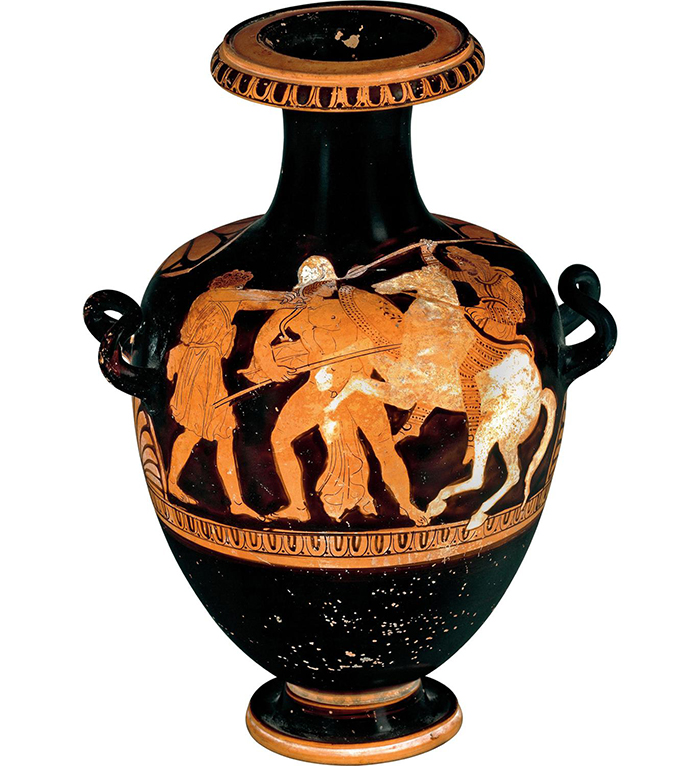
A Greek archer and hoplite (shown heroically, if inauthentically, nude) face a Persian horseman dressed in trousers (which Greeks considered a sign of barbarism), on a late fifth-century amphora. British Museum, London.
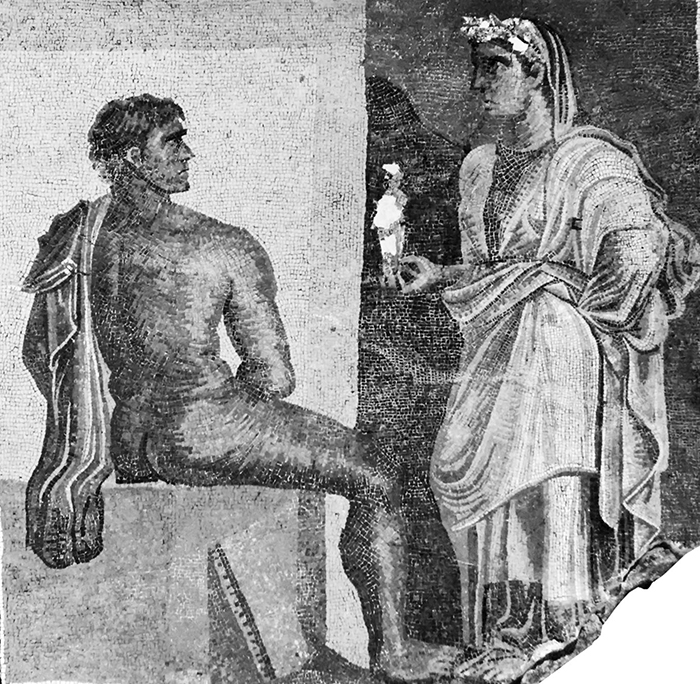
A second- or third-century AD mosaic from Rome of Orestes and Iphigenia, children of the legendary Agamemnon, demonstrates the all-pervading influence of Greek mythology. Musei Capitolini, Rome.
At the same time, it must always be remembered that Greek literature in the main tells only half of any possible story the vast majority of it was written by men. Because of this, and because of the androcentric nature of Greek society as a whole, ancient Greek historiography and biography focused largely on male lives. Drawing heavily on literary sources, our selection of biographies cannot but reflect this. Indeed, of the two women featured (Sappho and
Font size:
Interval:
Bookmark:
Similar books «A History of Ancient Greece in Fifty Lives»
Look at similar books to A History of Ancient Greece in Fifty Lives. We have selected literature similar in name and meaning in the hope of providing readers with more options to find new, interesting, not yet read works.
Discussion, reviews of the book A History of Ancient Greece in Fifty Lives and just readers' own opinions. Leave your comments, write what you think about the work, its meaning or the main characters. Specify what exactly you liked and what you didn't like, and why you think so.

